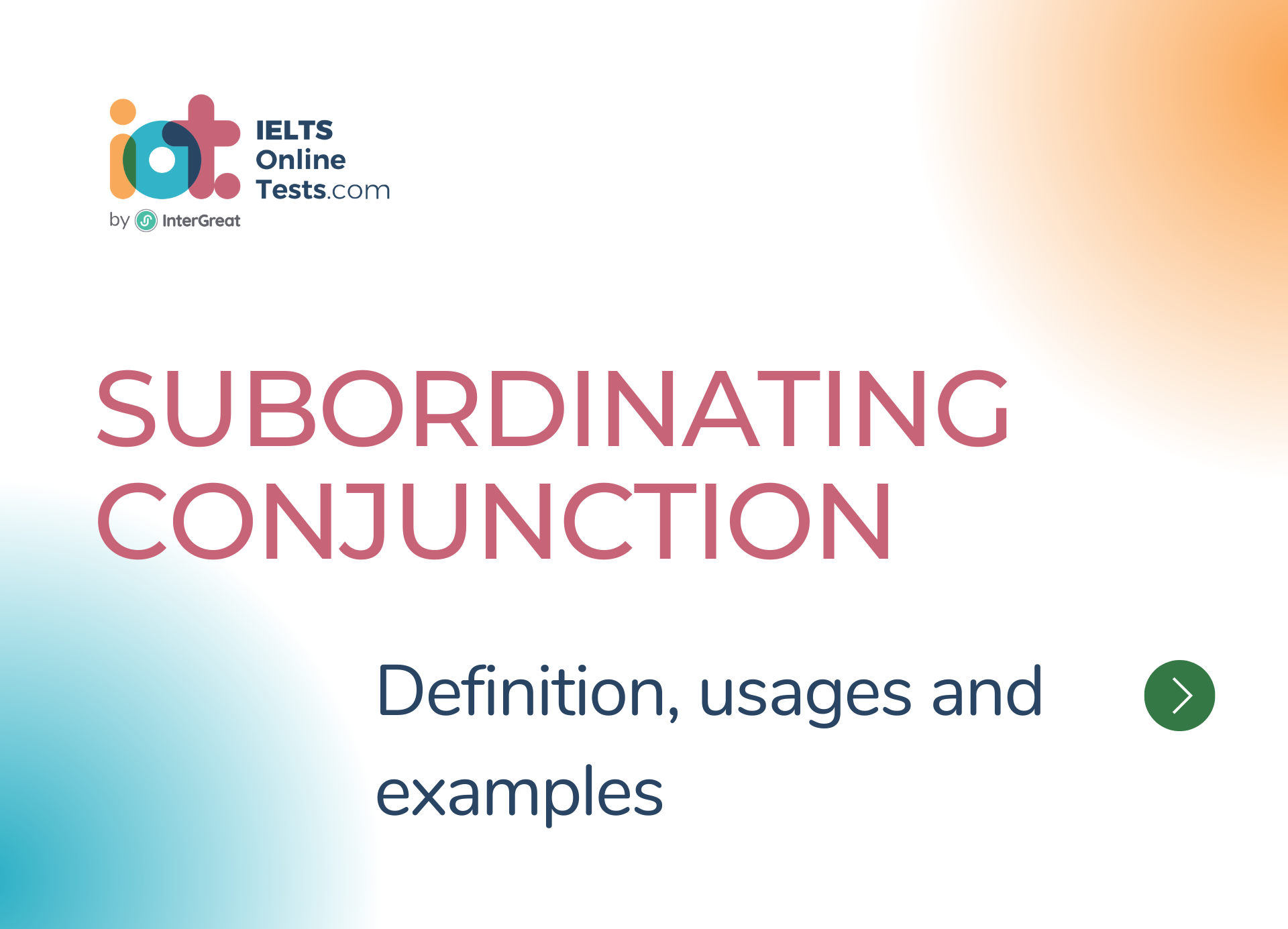
Subordinating conjunction definition, usages and examples
Subordinating conjunctions are a type of conjunction that introduces a subordinate clause and establishes a relationship of dependence or subordination with the main clause. They are used to show various types of relationships, such as cause and effect, time, condition, concession, contrast, and purpose.
Here are some important details about subordinating conjunctions:
Types of Subordinating Conjunctions:
- "Because": It indicates the cause or reason for something.
- "Although" / "Though": It shows a contrast or concession between two ideas.
- "If": It introduces a conditional clause.
- "When": It indicates a time relationship or condition.
- "Since": It expresses a cause or time relationship.
- "While": It denotes a simultaneous action or condition.
- "After": It indicates that an action or event occurs following another.
- "Before": It denotes that an action or event occurs prior to another.
- "Until": It signifies the continuation of an action or event until a specific time.
- "For": It introduces a clause indicating the duration of an action or event.
Usage:
- Subordinating conjunctions are used to introduce dependent clauses, which cannot stand alone as complete sentences.
- They join a dependent clause with an independent clause, and the dependent clause becomes subordinate to the main clause.
- Example:
- "He couldn't attend the party because he had to work."
- "Although it was raining, they decided to go for a walk."
- "If it rains, we will stay indoors."
- "I will call you when I arrive at the airport."
- "Since it was her birthday, we threw a surprise party."
- "While I was cooking, she set the table."
- "After she finished her meal, she went for a walk."
- "Please finish your homework before you play video games."
- "They will wait at the station until the train arrives."
- "He stayed up all night for he had an important presentation."
Placement:
- Subordinating conjunctions typically appear at the beginning of the dependent clause.
- Example:
- "Because I was tired, I went to bed early."
Punctuation:
- When a dependent clause comes before an independent clause, a comma is generally used to separate them.
- Example:
- "After he finished his homework, he played video games."
Subordinating conjunctions play a crucial role in indicating relationships between different parts of a sentence. They help establish the hierarchy of ideas and convey the dependency or subordination of one clause to another. Understanding and using subordinating conjunctions correctly will enable you to construct well-formed and cohesive sentences with complex structures and varied relationships between ideas.




